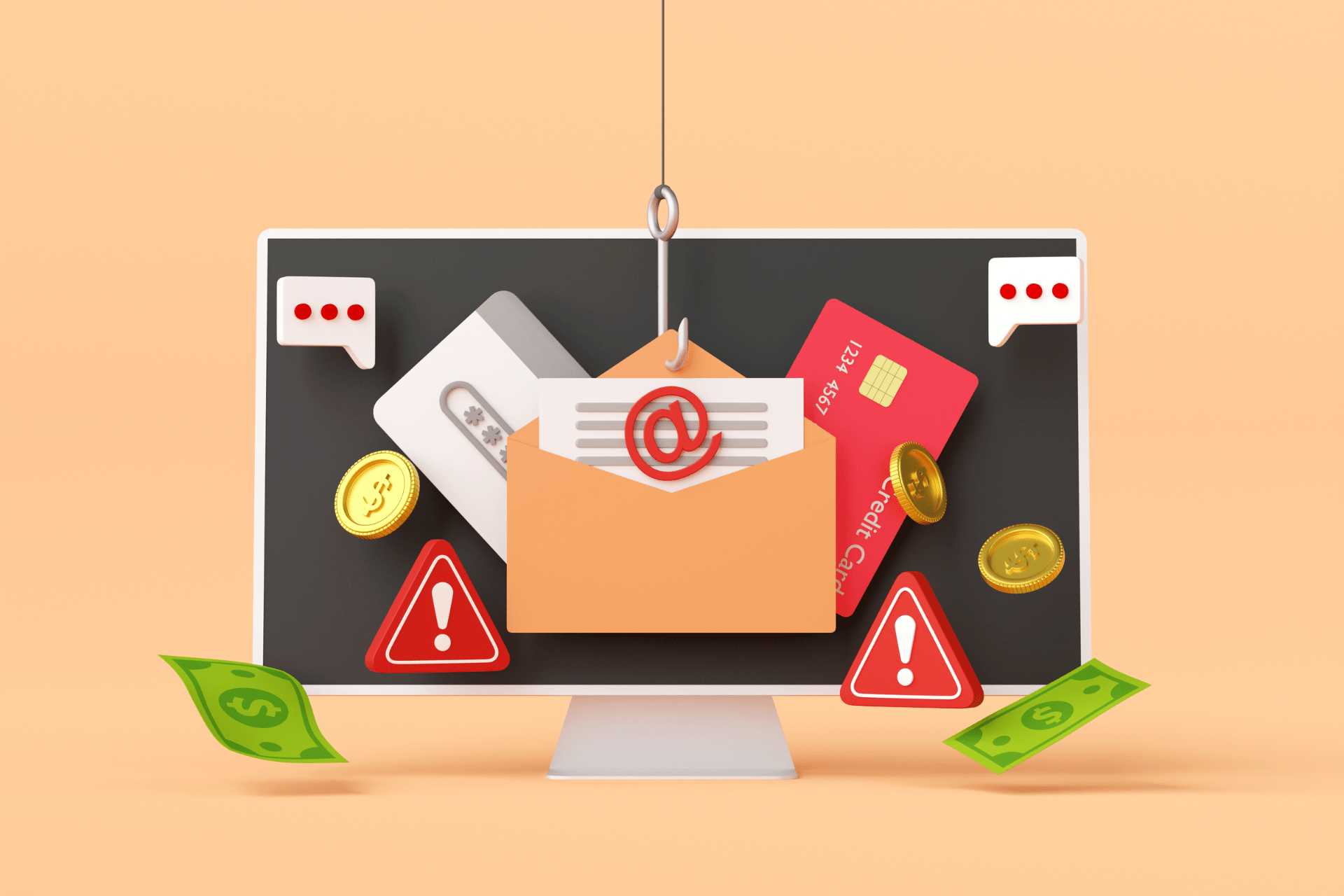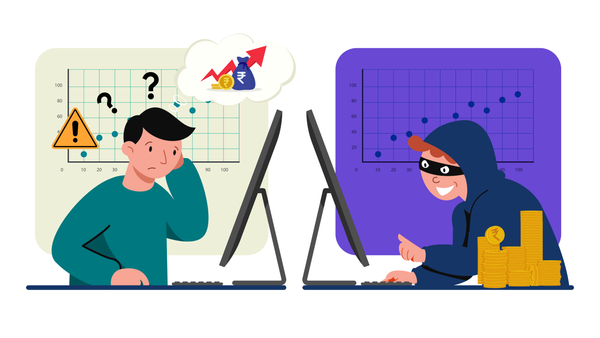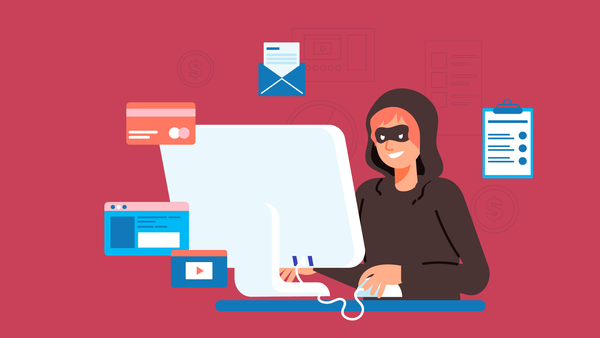Comprehensive Guide to Deal With Phishing
Phishing is a serious cybercrime. Learn how to protect yourself, recognize phishing attempts, and what to do if your account is compromised.

Phishing is a cybercrime in which a hacker acts as a genuine organization or person to collect sensitive information from a victim. This information might be anything from login credentials to financial information. Phishing attacks may be carried out in various ways, the most common of which is by email; however, they can also take place via SMS messaging, phone calls, or text messages.
The attacker in a phishing attempt will often send an email that looks to be from a reputable source, such as a bank, a government agency, or a well-known corporation. This is done to trick the target into divulging sensitive information. The email may include a link the victim is instructed to click on, sending them to a phony website that appears just like the real thing. When the victim arrives at the fraudulent website, they can be requested to input personal information such as their login credentials, a credit card number, or their social security number.
It is essential to be aware of phishing attempts and defend yourself by taking the necessary precautions. You should be able to identify these attempts of phishing.
Ways to Deal With Phishing:
You must take quick action to safeguard your personal information and your account by securing your account. The following are some of the actions that you need to take.
Change Your Password
If you have any reason to believe that someone else may have accessed your account, you should change your password. Be careful to choose a secure, one-of-a-kind password you haven’t used for your other online accounts. Avoid using simple passwords, such as “password” or “123456,” and think about using a password manager that can create and store secure, one-of-a-kind passwords on your behalf.
Activate Two-factor Authentication
If it is an option for your account, you should activate two-factor authentication if it is accessible. To log in, you will be required, in addition to entering your password, to input a code that has been provided to either your phone or your email. This will add a layer of protection. Even if an attacker manages to gain your password, this measure may reduce the likelihood that they will be able to access your account.
Notify The Relevant Authorities
Suppose you believe that a phishing attack has resulted in your account. In that case, you should contact the relevant authorities, such as your bank or the firm whose website was impersonated in the attack. They will be able to take whatever steps are required to safeguard your personal information and secure your account due to this information.
Monitor Your Accounts
Be sure to keep an eye out for any strange behavior on your accounts by monitoring them often. You should contact your bank if you become aware of any illegal transactions or other questionable behavior with your account. This may assist in reducing the amount of harm done and stop any additional illegal action.
Place A Freeze On Your Credit Report
If you are worried about having your identity stolen, one option to consider is placing a freeze on your credit report. Because of this, it will be impossible for anybody to get new loans or credit cards. Doing so will prevent unauthorized access to your credit report.
Join a Credit Monitoring Service
Joining a credit monitoring service will help you maintain track of your credit and alert you to any strange behavior. Doing this will make you better prepared to handle any financial challenges. This might make it easier for you to discover and resolve any possible difficulties with identity theft on time. Suppose any changes are made to your credit reports, such as a new credit card application being made in your name or a loan being taken out. In that case, credit monitoring services will normally give you warnings about these changes.
Whom to Contact Your Account Has Been Phished?
There are a few things you should do if you have any reason to believe that a phishing attack has compromised the security of your account. Notifying the proper authorities in charge of the situation should be one of your first measures.
This might include, but is not limited to, the following, depending on the kind of account that was compromised:
Your Bank: If you suspect someone has gained unauthorized access to your account, you need to contact your bank as quickly as possible. They will be able to take measures to protect your account and assist you in recouping any cash that has been misplaced.
The Firm That Issued Your Credit Card: if you discover that someone has gained unauthorized access to your credit card, notify the firm. They will assist you in stopping fraudulent transactions, cancel your card, and provide you with a new one.
Law Enforcement Agency: If you believe you have been the target of a phishing scam, you should report your suspicions to the relevant law enforcement agency as soon as possible. This may be of utmost significance in cases where the attack has resulted in considerable financial loss or identity theft. The authorities may be able to provide you with further information or lend you a helping hand.
This will make it easier for them to take the necessary actions to safeguard your personal information and secure your account.
Problems Caused by Phishing
Phishing attacks have the potential to cause a variety of problems for both people and companies. Phishing attacks might have several consequences, including the following:
Loss Of Sensitive Information: Obtaining sensitive information, such as login passwords, credit card numbers, or social security numbers, is one of the key aims of a phishing assault. However, this may result in the loss of sensitive information. This sensitive information may then be exploited for identity theft or fraudulent activities.
Loss Of Cash Or Credit: Phishing attacks may also result in loss of finances or credit, either directly via theft of funds or indirectly through illegal charges made on credit cards. For instance, an attacker may deceive a victim into transferring money or buying gift cards, or they could make fraudulent transactions using stolen credit card information.
Reputational Damage: A successful phishing attack may also result in reputational harm for the individual victim or company impersonated. This damage can be caused either to the individual victim or the business. This may result in a loss of trust and credibility and unfavorable public perception. For instance, if an employee is tricked by a phishing scam and transfers corporate money to a bogus account, the business may be held accountable for the stolen money.
In general, phishing assaults may have major repercussions for people and companies, including financial loss, harm to reputation, and legal repercussions. It is essential to be aware of phishing attempts and to take measures to protect oneself, and one’s company against these assaults.
Conclusion:
The act of phishing is immoral as well as illegal. If you fall prey to it, it can harm you greatly. Ensure you are careful of the links you click and the sites you surf. If your account has been hacked due to a phishing attempt, you may help secure it and safeguard your personal information by following the actions outlined in this article.





